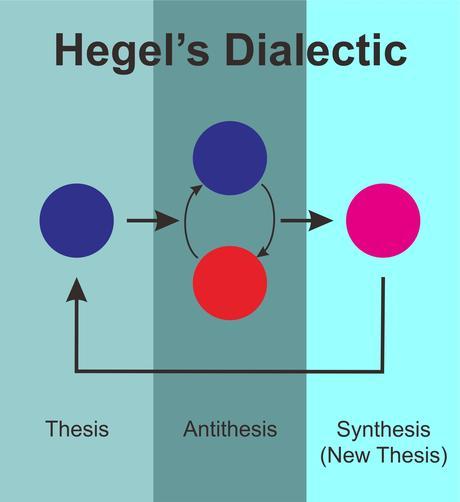The experiment. Imagine an idealist philosopher in an aeroplane at 85,555 feet. A ten second timer is activated that will eject the 'philosopher' from the plane. They are wearing a parachute, but it is not fastened. They must decide if they wish to fasten themselves to the parachute or not.
This eliminates idealist philosophers / philosophy- they either fasten the parachute and thus acknowledge the truth of physical reality - or they do not and fall to their death!
Philosophical Dictionary: Statement-Synthetic
The Antinomies can be resolved, Kant argues, if we understand the proper function and domain of the various faculties that contribute to produce knowledge. We must recognize that we cannot know things as they are in themselves and that our knowledge is subject to the conditions of our experience. The Rationalist project was doomed to failure because it did not take note of the contribution that our faculty of reason makes to our experience of objects. Their a priori analysis of our ideas could inform us about the content of our ideas, but it could not give a coherent demonstration of metaphysical truths about the external world, the self, the soul, God, and so on.
Synthesis | definition of synthesis by Medical dictionary
And in fact, reason produces an absolute statement of moral action. The moral imperative is unconditional that is, its imperative force is not tempered by the conditional " if I want to achieve some end, then do X." It simply states, do X. Kant believes that reason dictates a categorical imperative for moral action. He gives at least three formulations of the Categorical Imperative.
Philosophy: Idealism Vs. Realism: On Physical Realism of
It is not difficult to see how this interpretation of Hegel arose. In Phenomenology of Spirit , Hegel openly espouses determinism by stating that world history exhibits nothing other than the plan of providence. He further develops this belief in his Introduction to the Philosophy of History , explaining that in the pure light of this divine Idea. the illusion that the world is a mad or foolish happening disappears. Indeed, at no point in his writings does Hegel appear willing to place conditions upon these dogmatic statements. He is consistent in his assertion that history follows a specific path, one predetermined by the purposeful movement of Spirit through time:
The absolute argument against idealism is Darwinian evolution. It is necessary that the physical reality of the earth and sun existed prior to our evolution, thus prior to our mind's evolution. There are many common traits of the human mind which confirm that we evolved as animals on the surface of the earth. . We sleep, get hungry, seek pleasure, avoid pain, love others and lust for sexual reproduction. Idealism does not explain this - evolving as sexually reproducing animals on the surface of the earth does. Thus matter is a priori to mind. Popper's comments on idealism are pretty spot on
Hegel was known for his dialectical method to philosophy, in which (roughly) there were three stages of an idea: first a thesis, which would give the idea. This would provoke its antithesis, which is what would negate the idea. By understanding the two, this would cause the synthesis of the two opposite sides into a more refined idea. This new thesis would provoke a new antithesis, and so forth, which is how we continually refine our ideas progressively towards the truth.
The answer Hegel gives is that facts are important to theory, but only to a limited extent. As he asserts in Phenomenology , the individual has the right to demand that science should at least provide him with the ladder to any philosophical perspective. In other words, the objective facts should at least underlay the theory, offering empirical evidence of its possible validity. Hegel recognizes the significance of historical events, but only insofar as they provide evidence to confirm the underlying philosophy.
Philosophy - From postmodern relative truths to true knowledge of physical reality and thus wisdom from absolute truth.
With Kant's claim that the mind of the knower makes an active contribution to experience of objects before us, we are in a better position to understand transcendental idealism. Kant's arguments are designed to show the limitations of our knowledge. The Rationalists believed that we could possess metaphysical knowledge about God, souls, substance, and so forth they believed such knowledge was transcendentally real. Kant argues, however, that we cannot have knowledge of the realm beyond the empirical. That is, transcendental knowledge is ideal, not real, for minds like ours. Kant identifies two a priori sources of these constraints. The mind has a receptive capacity, or the sensibility , and the mind possesses a conceptual capacity, or the understanding.
Most of all, we are proud of our dedicated team, who has both the creativity and understanding of our clients' needs. Our writers always follow your instructions and bring fresh ideas to the table, which remains a huge part of success in writing an essay. We guarantee the authenticity of your paper, whether it's an essay or a dissertation. Furthermore, we ensure confidentiality of your personal information, so the chance that someone will find out about our cooperation is slim to none. We do not share any of your information to anyone.

"Philosophy thesis antithesis synthesis" in pictures. More images "Philosophy thesis antithesis synthesis".

